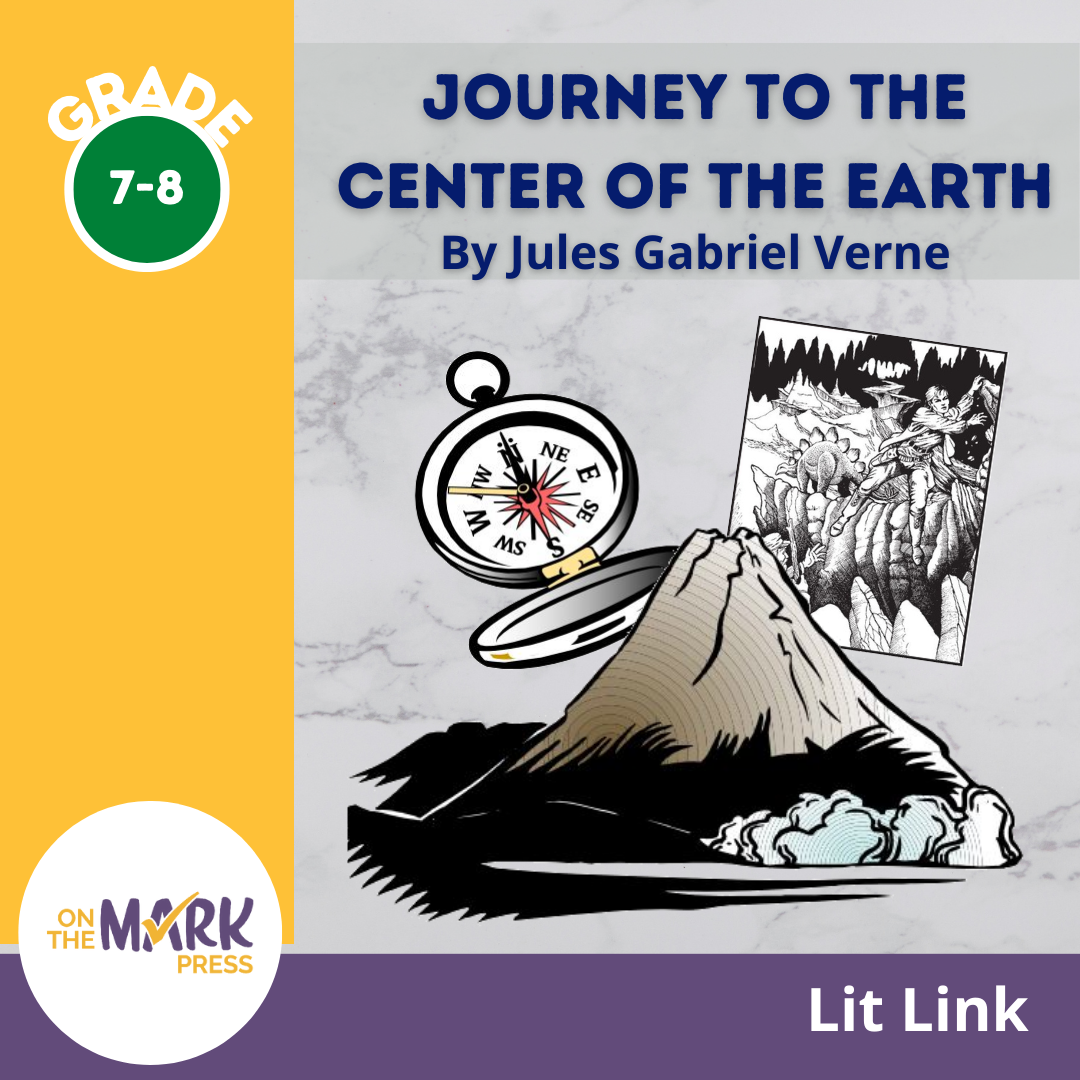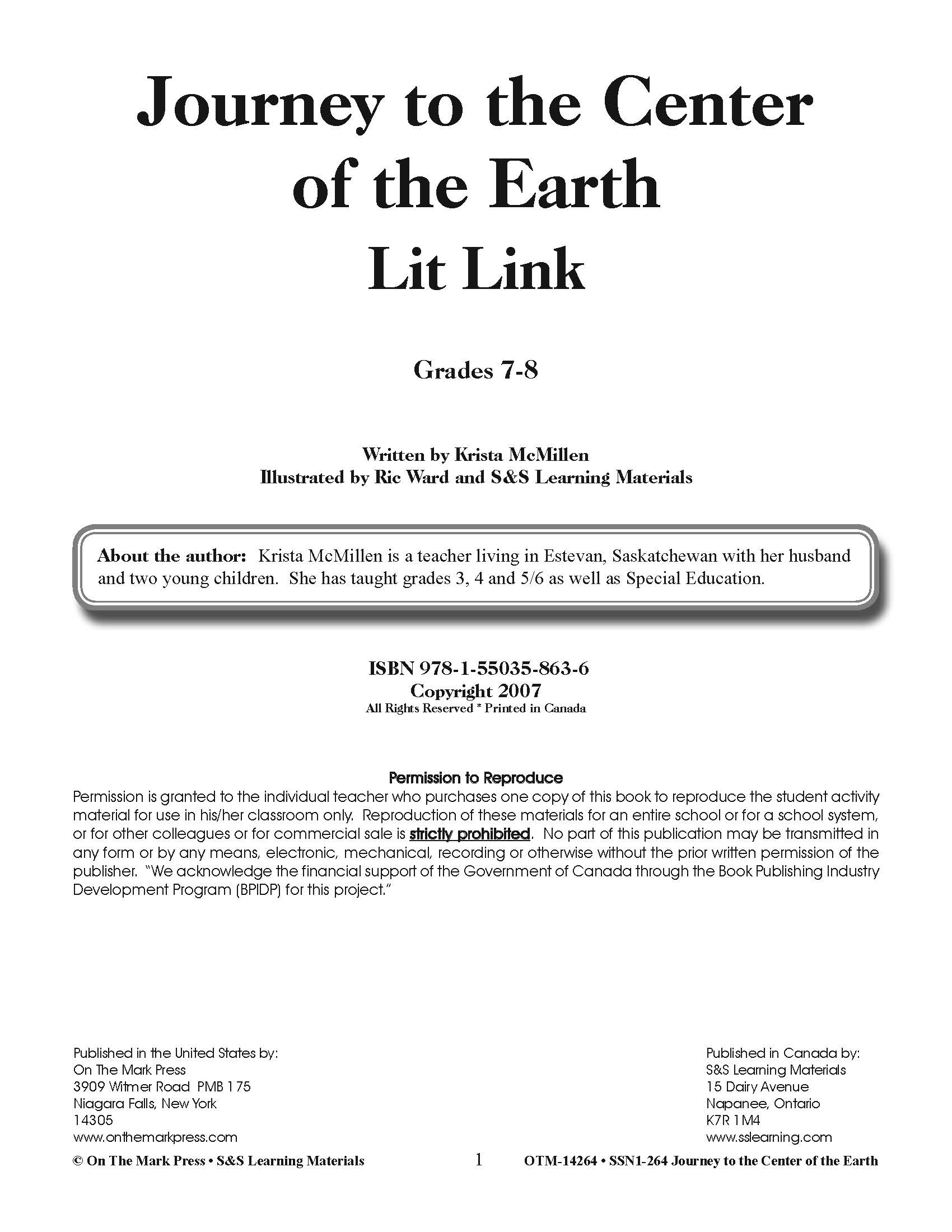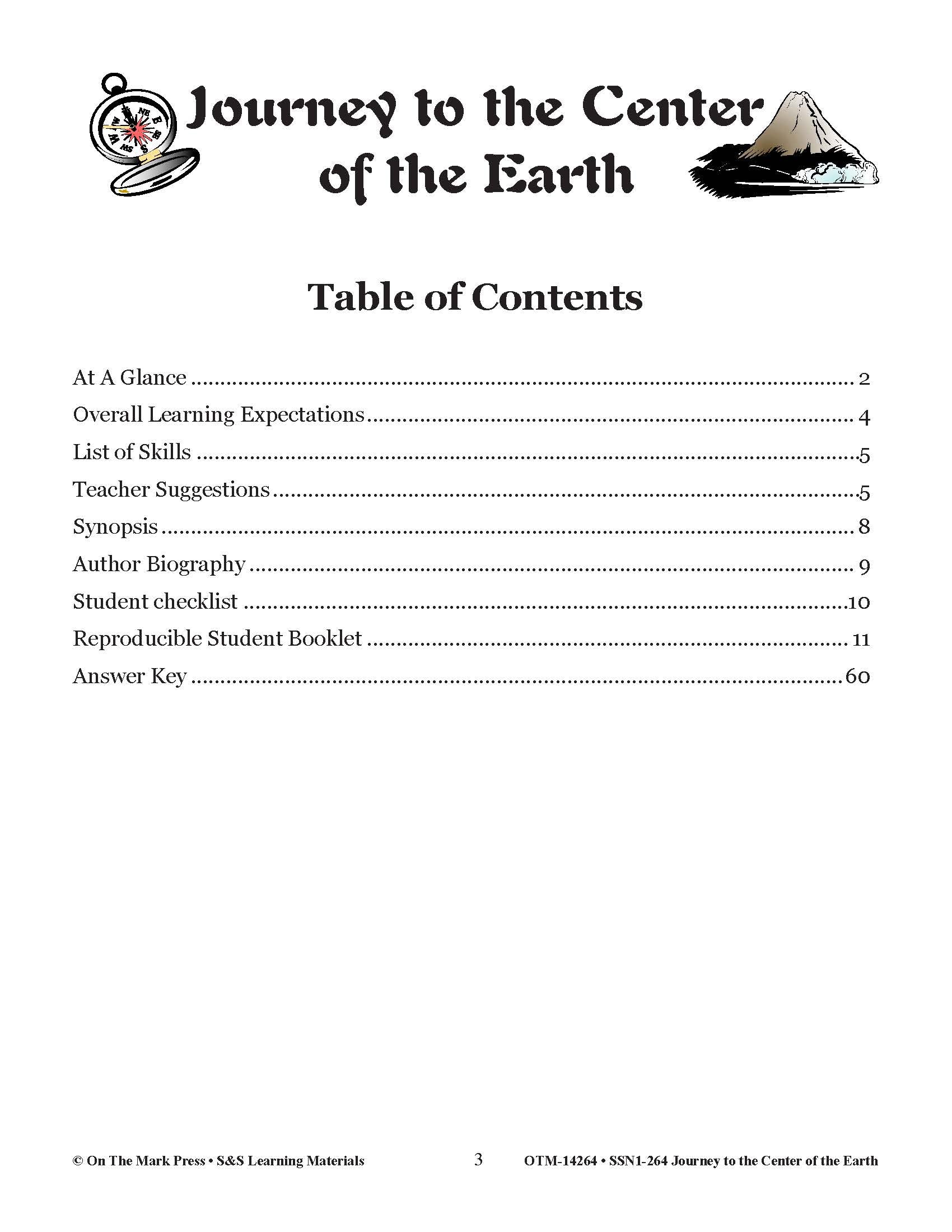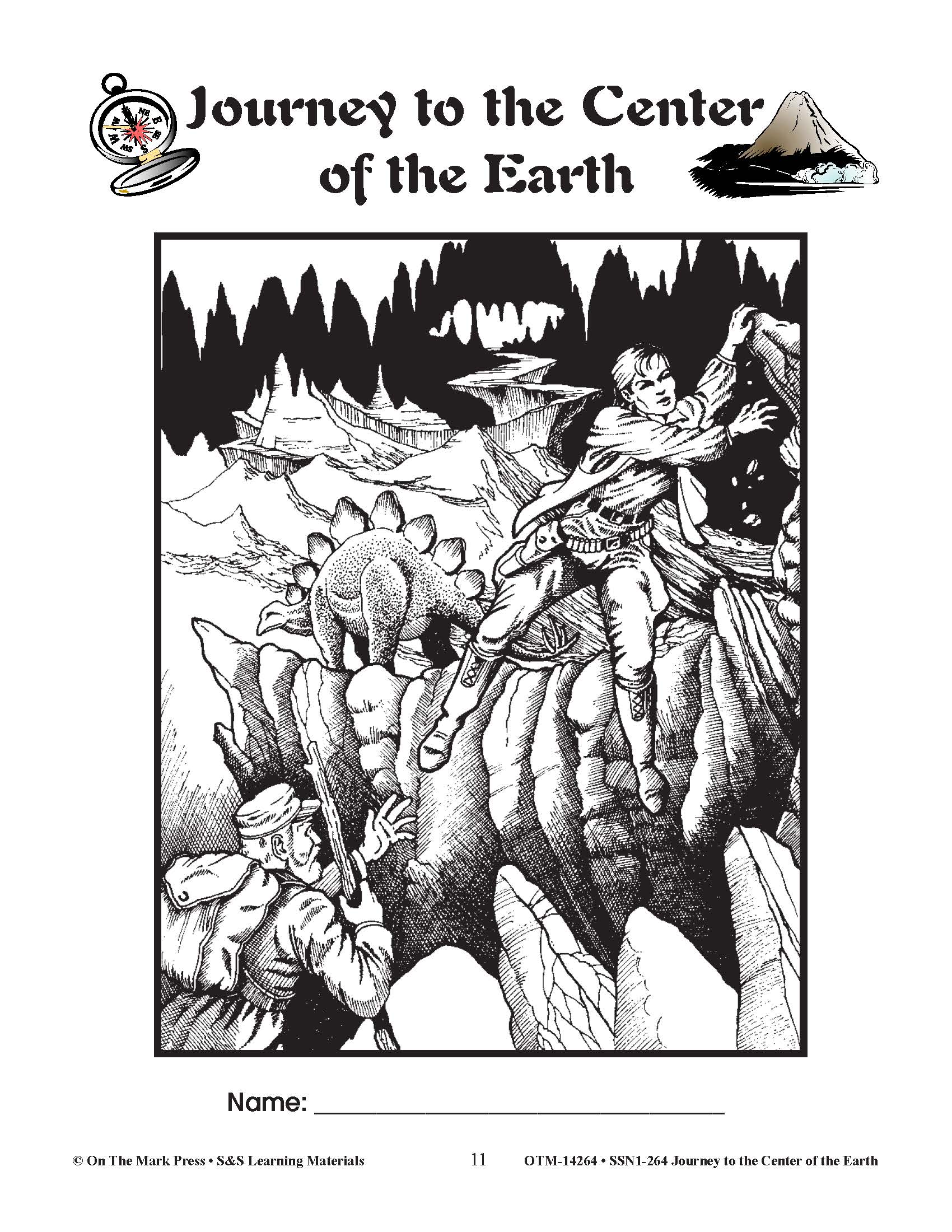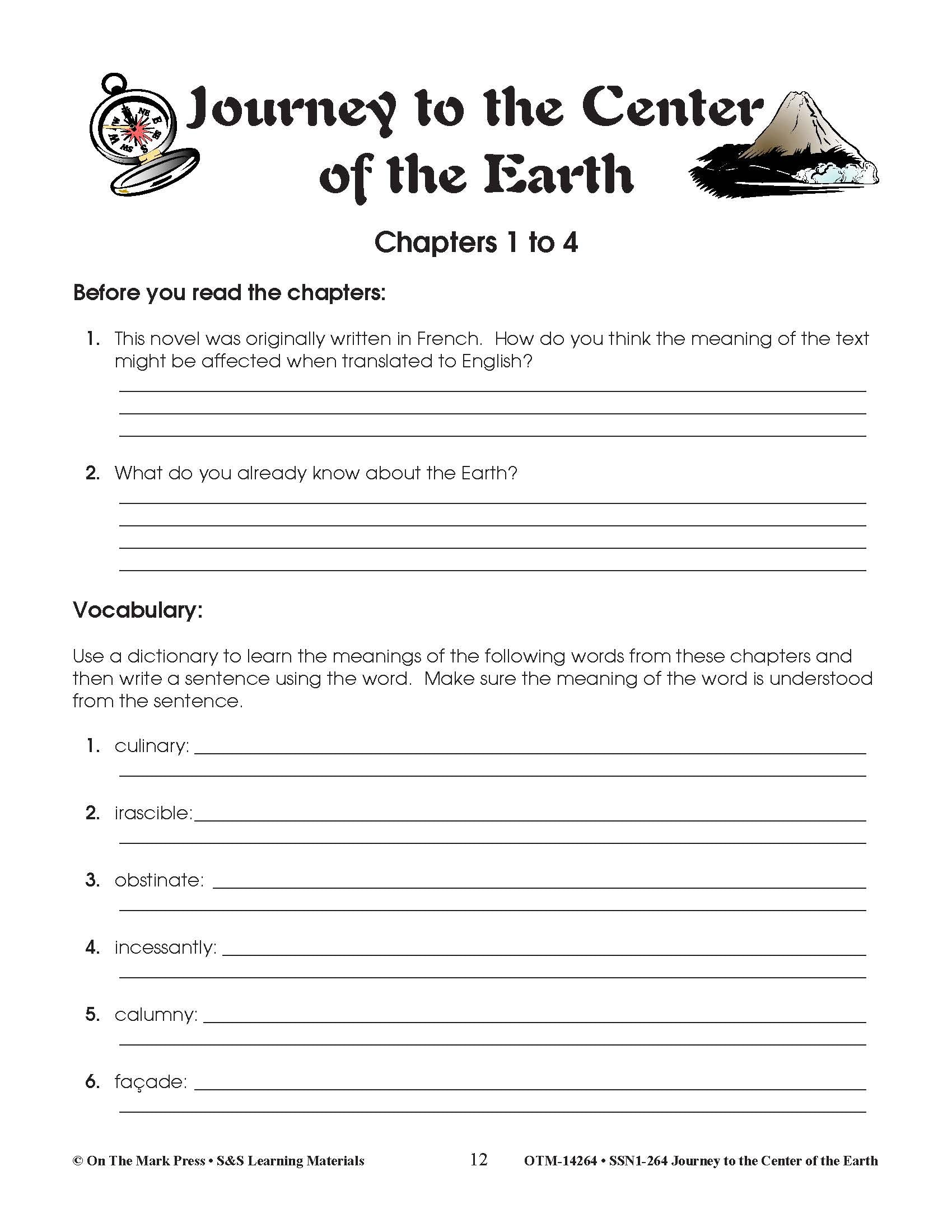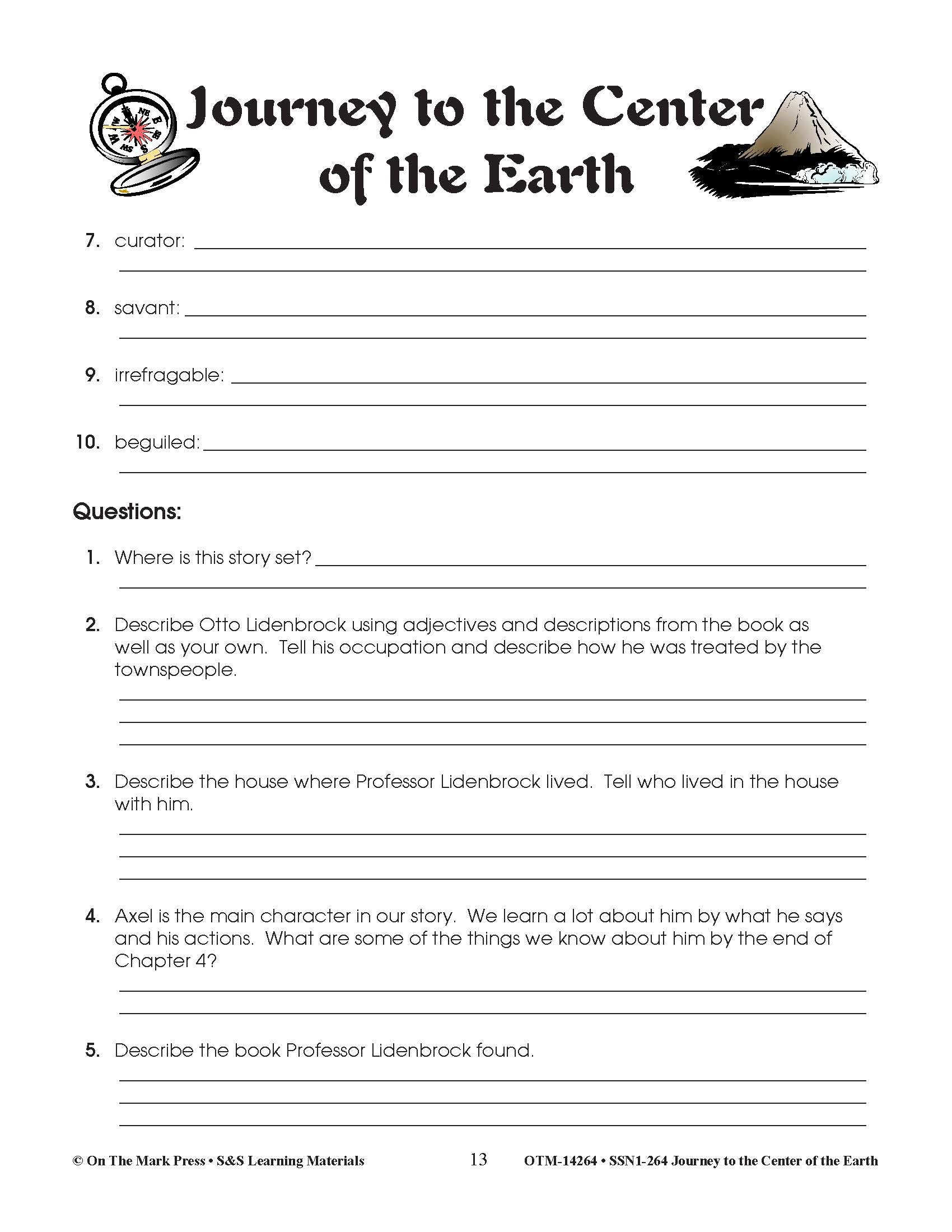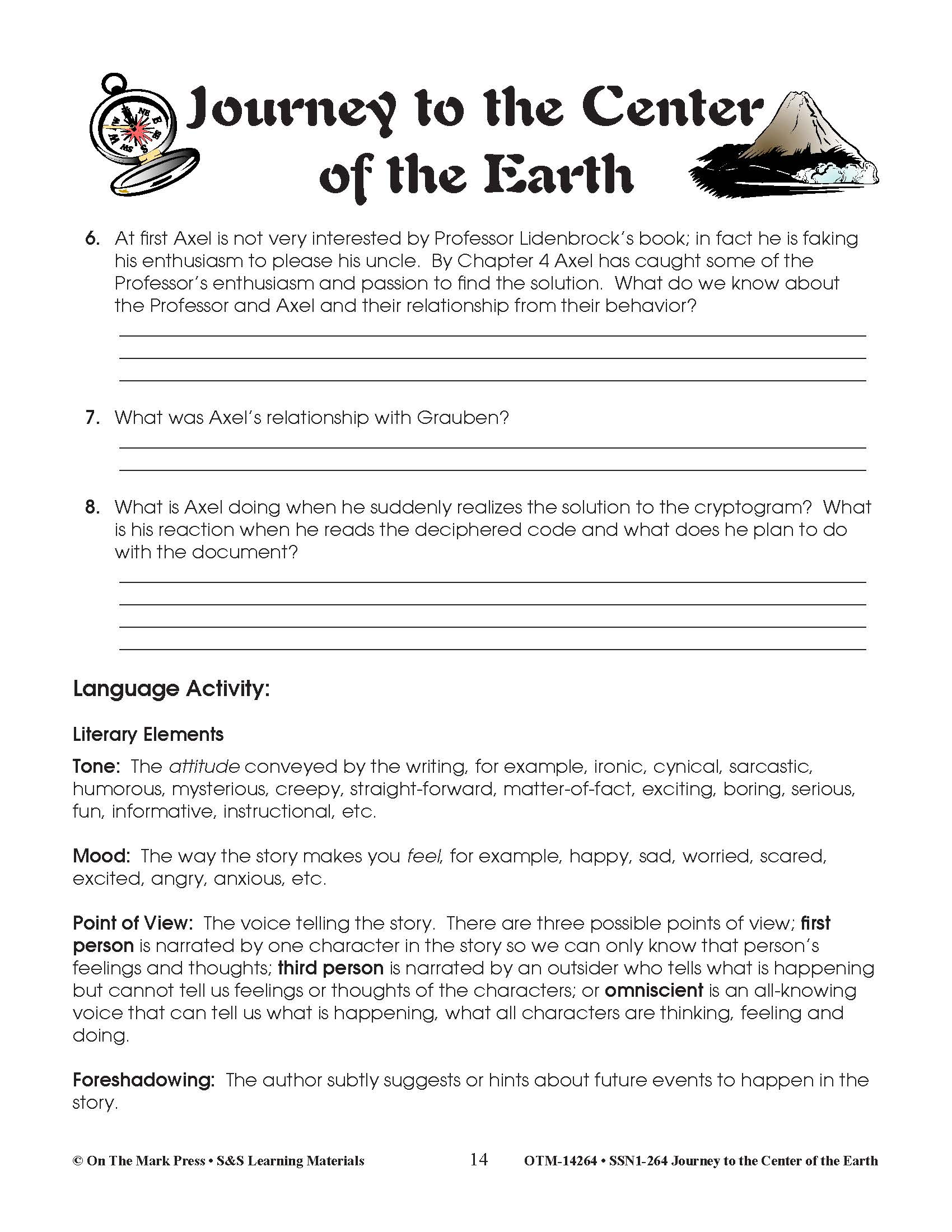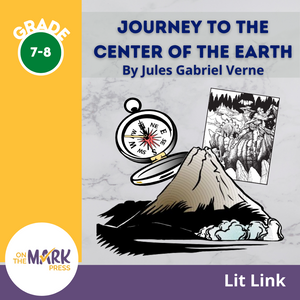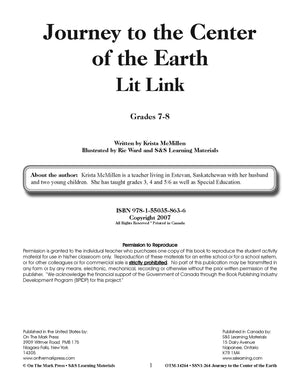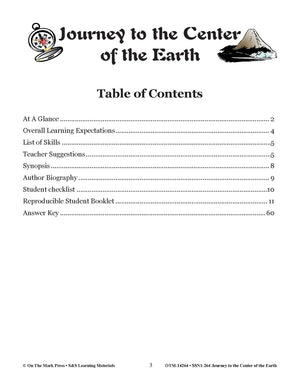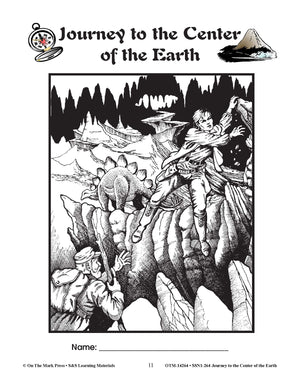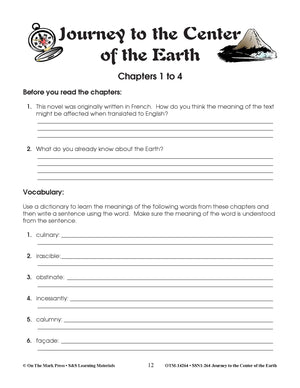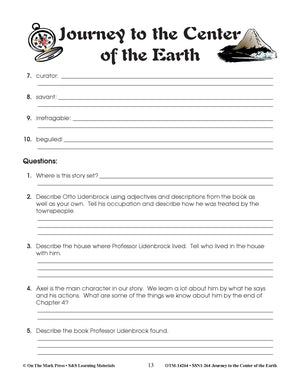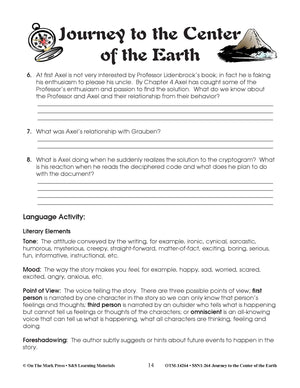Journey to the Center of the Earth, by Jules Verne Lit Link/Novel Study Grades 7-8
OTM14264
$23.99 CAD
Additional information:
Use the 48 pages of chapter questions, plus a booklet cover page, for the novel Journey to the Center of the Earthy by Jules Verne. Each set of chapter questions includes Before You Read the Chapter Questions: Vocabulary; Questions (comprehension); Language Activities; and Extension Activities. A story summary, author biography, and an answer key, complete this guide.
Quick Synopsis:
A secret code found in a medieval manuscript claims to reveal the location of a passage to the center of the Earth. A professor and his nephew set out on a timeless adventure through a volcano in Iceland. Oceans, prehistoric creatures, massive storms, and near-death explosions await them. But do they make it to the very center of the Earth?
Note: This resource is based on the Bantom Dell, 1991 edition, reissued in May 2006, with an Introduction by Kim Stanley Robinson
List of Skills
Vocabulary Development
1. Use context clues
2. Understand and identify colloquialisms
3. Identify synonyms, antonyms, homonyms
4. Identify adjectives and adverbs
5. Identify syllables
6. Identify similes
7. Use descriptive words and phrases
8. Dictionary or thesaurus skills
9. Identify plurals
10. Use correct punctuation and capitalization
Plot Activities
1. Identify and describe literary elements
2. Summarize events and details
3. Identify climax
4. Identify foreshadowing
5. Identify conflict
Character Activities
1. Compare and understand characters
2. Match characters to their quotes
Creative and Critical Thinking
1. Use a Venn diagram to compare/contrast
2. Make inferences
3. Develop opinions and interpretations
4. Create a cryptogram
5. Create a timeline
6. Conduct and present research
Art Activities
1. Write a short story
2. Write and perform a skit
3. Create visuals of the reading
Integrating Other Subject Areas
1. Create a scale drawing
2. Use and label a map
3. Conduct and present research
The students will:
-
develop and practice their skills in reading, writing, listening and oral communication
-
use good literature as a vehicle for developing skills required by curriculum expectations: reasoning, critical, and creative thinking, knowledge of language structure, vocabulary building, and use of conventions
-
develop a love for literature and reading
-
identify elements of story
-
develop personal opinions and interpretations
-
develop their ability to express themselves orally to present opinions and information
-
develop their ability to work cooperatively with others practice good organization skills
-
learn about overcoming personal obstacles, personal relationships, character and integrity, and other personality traits
-
appreciate that growth in one’s character is important
-
relate their reading to their own lives and experiences
64 pages including an answer key.

